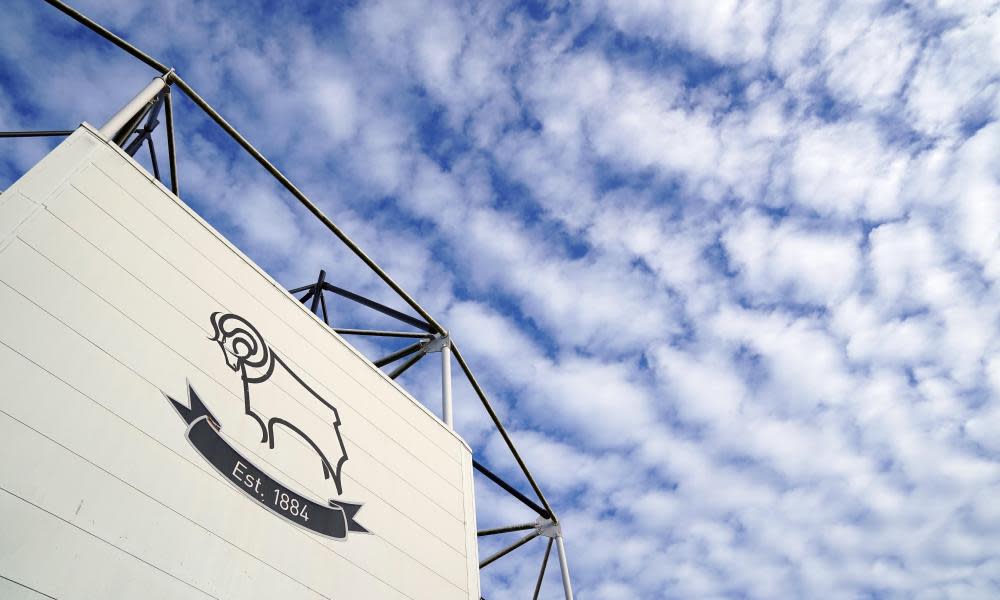The Guardian view on football governance: there must be no more Derbys

“Dad came to Derby in 60s from India. Going to games probably made him feel less alien as all supported the same cause. We as a family done the same since ’92. City and club part of identity.” So reads one of hundreds of tweets on an emotional thread devoted to Derby County football club, which risks expulsion from the English game if financial guarantees are not forthcoming by the end of February. A proud city is holding its breath and hoping for the best. But it should never have come to this.
Primary responsibility for Derby’s predicament must lie with its former owner, the local businessman Mel Morris. Betting this famous club’s future on its ability to regain a place among the Premier League’s wealthy elite, Mr Morris was found to have flouted the financial fair play rules of the English Football League (EFL), thus driving the club into unsustainable debt. When promotion didn’t happen, the game was up. Mr Morris took the club into administration and the EFL imposed a 21-point deduction for financial breaches. Unless a new owner materialises to assuage creditors – and damages claims from two rival clubs are dealt with – Derby risk imminent liquidation and the league will lose a founder member.
Three potential buyers are circling. This week the EFL extended a deadline for a solution to be found by one month. But this sad episode has again underlined the need for football clubs to be protected from the egos, ambitions and dubious schemes of owners. An independent regulator – as envisaged by the recent fan-led Crouch review of football governance – would act as a bulwark against malpractice and a crucial ally for fans concerned that their clubs have fallen into the wrong hands.
Derby’s near-death experience also lays bare the knock-on consequences of allowing too much power and wealth to be hoarded in football’s top tier. Owners such as Mr Morris win backing for the risks they take because they seem to offer a route to the promised land. The Crouch review noted disapprovingly the “huge disparities between the finances of the Premier League and the rest of the football pyramid”. The game needs to return to the more egalitarian ethos that prevailed before the Premier League breakaway in 1992, when revenue was more evenly distributed. The riches amassed at the very top are disproportionate and have generated a self-perpetuating elite, gradually stripping the game of romance and its capacity to surprise.
Football is not just another industry. Discussing the situation at Derby, the footballer-turned-pundit Gary Neville suggested that clubs should be treated like “Grade I-listed buildings” rather than ordinary businesses. As communal institutions that instil a sense of belonging and foster civic pride, the way they are governed matters. At this weekend’s home game against Birmingham City, Derby’s Pride Park stadium (currently owned by Mr Morris) will be packed in a show of support. The rest of the football world is united in hoping they get out of the woods, but lessons must be learned from this hair-raising rollercoaster ride. The government appears favourably disposed to the recommendations of the Crouch review. It must now act on them.

 Yahoo Movies
Yahoo Movies 
